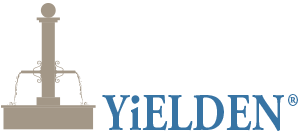Structured Products, Certificates, and the Democratization of Investing: Unleashing the Power of Retail Investors.
The rapid growth of structured products and certificates has opened up new opportunities for retail investors to participate in complex investment strategies and products.
This democratization of investing is driving greater participation and diversity in financial markets, creating a more level playing field for retail investors.

In Europe and Switzerland, the primary market offers additional timeframes for retail investors to reflect on their decisions, with minimum investment amounts often set at €1,000 or 2,000.
The growing range of structured products and certificates available for subscription or newly issued products has the potential to further democratize investing.
In Europe and Switzerland, the primary market offers additional timeframes for retail investors to reflect on their decisions, with minimum investment amounts often set at €1,000 or 2,000.
The growing range of structured products and certificates available for subscription or newly issued products has the potential to further democratize investing.
Democratization of Investing through Structured Products
- Accessibility to Complex Strategies: Structured products can help retail investors access and benefit from complex investment strategies typically reserved for sophisticated investors. For example, a retail investor may invest in a certificate that provides exposure to a basket of high-yield bonds or a specific industry sector, without having to research and select individual bonds or equities themselves. This can help retail investors diversify their portfolios and achieve targeted returns, while minimizing risk.
- Customizable Risk-Reward Profiles: Structured products allow retail investors to tailor their investment risk-reward profile according to their preferences and risk tolerance. For example, capital protection structured products can help conservative investors protect their initial investment while participating in market gains, whereas more aggressive investors may opt for higher-risk, higher-return products. This customization enables retail investors to make more informed decisions and better manage their investment risks.
- Lower Barriers to Entry: With minimum investment amounts often set at €1,000 or 2,000 in Europe and Switzerland, structured products and certificates lower the barriers to entry for retail investors. This makes it easier for individuals to participate in the financial markets and benefit from the potential returns of various asset classes.
- Enhanced Market Participation: The increased accessibility and customization of structured products can lead to greater market participation by retail investors. This can result in a more diverse and resilient financial market, as retail investors bring new perspectives and investment approaches to the table.
Examples of Structured Products Democratizing Investing
- Actively Managed Certificates (AMCs): AMCs are a type of structured product that provides investors with exposure to a dynamically managed basket of assets. These certificates enable retail investors to access professionally managed portfolios, which may include a mix of equities, bonds, commodities, and alternative investments, at a lower cost than traditional investment funds. An example of an AMC is the Swiss-based Leonteq AMC, which offers investors access to a diversified multi-asset portfolio managed by experts (source: Leonteq).
- Thematic Certificates: Thematic certificates focus on specific industries, sectors, or trends, enabling retail investors to capitalize on the growth potential of these areas without having to research and select individual stocks. An example of a thematic certificate is the Vontobel “Future of Mobility” certificate, which provides exposure to companies involved in electric vehicles, autonomous driving, and shared mobility (source: Vontobel).
- Leveraged Certificates: Leveraged certificates offer retail investors the opportunity to magnify their returns by leveraging their investments. These products can provide retail investors with exposure to leveraged gains in underlying assets, such as indices or commodities, without the need to manage complex margin accounts. An example of a leveraged certificate is the UBS “3x Long S&P 500” certificate, which offers three times the daily performance of the S&P 500 index (source: UBS).
Potential Implications of the Democratization of Investing
- Increased Financial Literacy: As retail investors increasingly participate in the financial markets through structured products, there may be a greater emphasis on financial literacy and education. This can empower individuals to make more informed investment decisions and manage their financial risks more effectively.
- Enhanced Market Efficiency: The democratization of investing through structured products and certificates may lead to improved market efficiency, as a larger and more diverse group of market participants can contribute to the price discovery process. This can result in more accurate asset pricing and a more efficient allocation of capital.
- Investors may necessitate stronger regulation and oversight to protect investors from potential risks and market abuse. Regulators should ensure that these products are transparent, fairly priced, and suitable for the specific needs of retail investors.
The primary market for structured products and certificates plays a vital role in the democratization of investing, providing retail investors with access to complex investment strategies and products at lower minimum investment amounts.
The expanding range of structured products available in Europe and Switzerland’s primary market is driving greater participation and diversity in the financial markets.
This trend has the potential to unleash the power of retail investors, leading to a more inclusive and resilient financial system.
However, the democratization of investing also highlights the importance of financial literacy, education, and regulation to ensure that retail investors can make informed decisions and successfully maneuver through the intricate landscape of structured products and certificates.
Financial Literacy and Education: With the increased accessibility of structured products and certificates, there is a growing need for financial education and literacy among retail investors. This will enable them to make informed decisions about their investments and fully benefit from the opportunities provided by the primary market.
Innovation and Competition: The democratization of investing through the primary market has the potential to spur innovation and competition among financial institutions, as they seek to develop new and attractive investment products to cater to the diverse needs and preferences of retail investors.
Evolving Risk Management Strategies: As retail investors gain exposure to a wider range of investment products and strategies through the primary market, they may also need to adapt their risk management strategies accordingly. This can include diversifying their portfolios, setting appropriate investment time horizons, and seeking professional advice when needed.
Impact on Traditional Investment Products: The growing popularity of structured products and certificates in the primary market may impact traditional investment products, such as mutual funds and exchange-traded funds (ETFs). Investors seeking more tailored investment solutions and exposure to specific themes or strategies may increasingly opt for structured products, potentially affecting the demand for traditional investment products.
Structured products and certificates are playing a significant role in democratizing investing by making complex investment strategies and products more accessible to retail investors.
The growing range of structured products available in Europe and Switzerland, along with lower minimum investment amounts, is driving greater participation and diversity in the financial markets.
Get Started with YiELDEN




